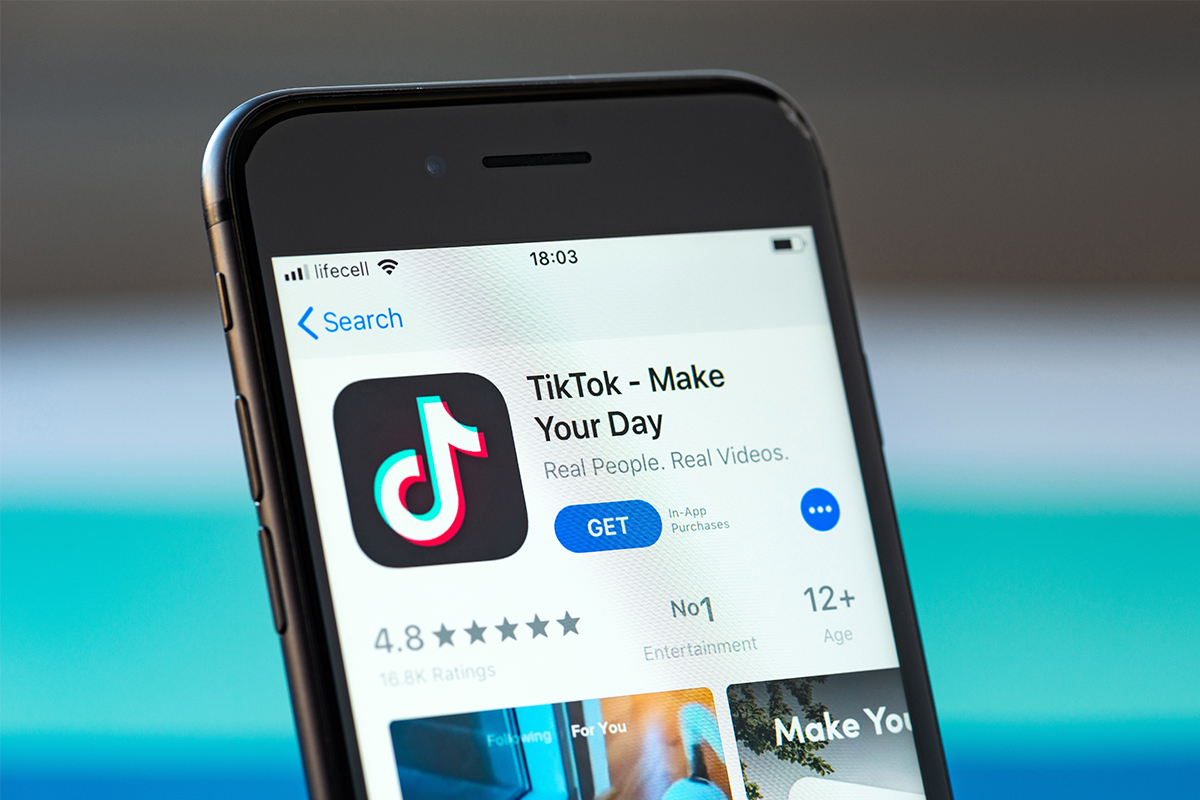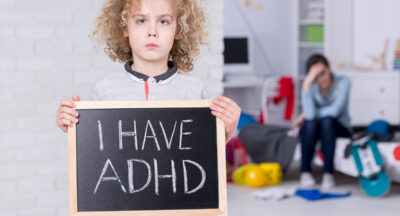
Too Viral?: Investigating the Effects of Mental Health Content on TikTok
Starting out as an app to pass the time with dance challenges like the Renegade, created by Jalaiah Harmon, or watching animals talk, like “Bunny” the cute sheepadoodle who uses an electronic button system communicate with her owners – TikTok took the social media world by storm at the height of the COVID-19 pandemic.
With well over a billion active users, TikTok continues to prove that its platform is one of the most influential in social media. As the app grows in popularity, there’s a growing concern around how influential the platform can be, especially as it pertains to long-term mental health.
The video-based platform reported that the hashtag “#mentalhealth” has recently gained more than 20 billion views. This is not including similar hashtags either – with others like “#anxiety” having over 11 billion views, or “#ADHD” with over 9 billion views. As more individuals openly express their ongoing struggles, especially younger TikTok users, the community on the app should be mindful of how impactful their content can be, and realize how many people it may be reaching.
According to the National Institute of Mental Health (NIH), 1 in every 5 adults in the United States lives with a mental illness, and an estimated 49% of adolescents, ages 13-19, have a mental health disorder. The most common mental health disorders in both adults and adolescents include anxiety, depression, and disorders related to mood.
Coincidentally, TikTok’s core audience falls between these ranges for adult and adolescent, seeing its core audience’s age being between 13-29 years old.
The information being shared between users on TikTok can lead many users to develop a confirmation bias, meaning users are more likely to gravitate towards and engage with content they agree with most. Licensed healthcare providers, who are not actively on the app, have warned that some of the creators on the app sharing mental health content are not always transparent about their background, credentials, and/or the information they are sharing, which can be cause for concern.
The consumption of inaccurate, non-evidence-based information on TikTok can have serious consequences, such as:
- Delaying seeking help from a licensed healthcare professional to accurately diagnose and provide a care plan for your mental health concerns.
- Increased spending on products and apps that are promoted by influencers that have not been studied or proven effective by licensed professionals.
- Propagating negative stereotypes surrounding mental health disorders such as ADHD, bipolar disorder, and others.
As we continue to explore mental health content on TikTok, having a clear understanding of how to navigate the mental health content on the app can be helpful in identifying the benefits and limitations of the community, but always remember to seek professional help from a licensed healthcare provider.
Here are three positives and three negatives to keep in mind when navigating mental health topics on TikTok:
Please note: The content presented on this page is for educational purposes only. This is not intended to provide medical advice, diagnosis, and/or a treatment plan. We strongly recommend speaking with a licensed healthcare provider for more information on mental health.
Positives
Educational Outlets
TikTok, and other social media platforms, offer a stage for educators to teach new audiences. As we enter an age of innovation around how people gather and receive information, platforms like TikTok have revolutionized the way in which individuals can learn.
Kojo Sarfo, DNP, PMHNP-BC is an example of a creator that continues to gain popularity on TikTok. With over 2 million followers, Dr. Kojo Sarfo is a licensed psychiatric mental health nurse practitioner that covers mental health topics using entertaining and relatable examples for topics such as depression, ADHD, healthy relationships, and more.
He has helped followers with grasping new terminology, identifying signs and symptoms, and stressing the importance of seeking advice from a licensed healthcare professional.
Community and a Sense of Validation
Human beings are naturally driven toward building communities and communal spaces. We seek community for a variety of reasons, but often it is the need for validation. We yearn to feel included, heard, and to be around likeminded people. TikTok promotes this exact scenario for millions of communities. Billions of people adopted the platform for mindless entertainment, but many more have stayed as their connections within their TikTok community have grown.
Shani Tran, LPCC is an example of a creator that has used the platform to create a safe space for young people struggling with managing their mental health. Her emphasis on TikTok not being therapy, but rather a space that can be useful for community and learning, has helped her to amass over 478,000 followers. As a LPCC, she covers topics such as depression in children under the age of 10, emotional eating disorders, and even helps adults with navigating billing/insurance.
Provider Search
Seeking a licensed healthcare professional that not just addresses your concerns, but makes you feel comfortable enough to share is paramount to successful treatment. TikTok has not only created a platform for education and community-building, but also a place where individuals’ can find a provider in their area. Part of the innovation of TikTok is it can share content with users that is geographically relevant. This can be extremely helpful for people searching for services in their area, and want to see more from a provider before committing to treatment, and TikTok provides an outlet for this to happen.
Nadia Addessi, Registered Social Worker and Psychotherapist, is a creator with over 3 million followers on the app; she began her TikTok journey when she came across a client who was struggling with obsessive-compulsive disorder (OCD), and explained that she had not sought out help until she came across videos on TikTok discussing the disorder.
“It was not until a video on TikTok made them realize that this was a disorder and they were not alone,” Addessi said. “Therefore, yes, I believe TikTok is improving lives and even saving lives in some cases.”
Negatives
Misleading/Inaccurate Information
The internet is a breeding ground for misleading information or disinformation entirely. The level of which TikTok has contributed to this is also concerning since there are many users on the app touting personal experiences as genuine medical advice, rather than professional knowledge and evidence-based research. TikTok also makes this information much more accessible if the algorithm determines the content has high engagement potential, creating even more concern for people who are easily impressionable and/or in vulnerable states.
As Dr. Doreen Dodgen-Magee, a psychologist based in Oregon pointed out, ”There are many accounts hosted by educated, trained, and licensed professionals where reliable information can be found, but not all posts contain accurate, science-backed information – and many people scrolling through TikTok don’t know this.”
A best practice and great rule of thumb when you viewing a video on mental health, do more research. Consider doing an internet search of the person to see their background and learn more or as always, reach out to a licensed healthcare professional if you have questions or concerns.
Increasing Mental Health Disorders
With the increased popularity and use of social media for mental health advice, healthcare providers and researchers warn of the dangers that watching these videos can cause.
In a research article conducted on social media and its impact on mental health, researchers found that social media can lead to an increased exposure to harm, social isolation, depressive symptoms, and cyberbullying. Continued use can lead to even more mental distress for individuals’ who have not sought out care or have access to mental health care.
Self-Diagnosing
The mental health community on TikTok has helped in the reduction of stigmas and stereotypes associated with mental health – which has encouraged individuals to seek professional help. While this is positive, there is still concern around the way people view content and subsequently self-diagnosing without proper screening and testing by a licensed healthcare professional.
Dr. John F. Tholen, PhD, a psychologist in California shared his thoughts on social media and the dangers of self-diagnosis when he stated, “… any professional can attest, making a psychiatric diagnosis is a complicated process that requires subtle distinctions. There is a big different between having symptoms and having a disorder.”
There are countless examples of how people are using TikTok as a way to diagnose themselves with disorders like bipolar disorder, ADHD, schizophrenia, and more.
It is important to avoid self-diagnosis in any way and instead seek accurate advice and care on screening for mental health disorders by visiting a licensed healthcare provider.
Takeaways
The aim of this article is not to impart panic, but to provide insight and understanding that TikTok is not a mental health provider and content should not be used as a form of treatment.
It is a fun and engaging app that brought many people together in the early pandemic days, but has since evolved. If you find yourself on #mentalhealthtok, we want you to keep this article in mind, and know that regardless of what the video shared it is always best practice and recommended to talk to a licensed healthcare provider about your mental health concerns.
Experts in neurofeedback treatment for mental health disorders, Cognitive Solutions LC uses Low Energy Neurofeedback System (LENS) and BrainAvatar by BrainMaster to study brainwaves and enhance their function. We can provide more information, answer questions, and help decide what type of neurofeedback treatment options are right for you. Please contact us at (773) 755-1775 or email info@helpforld.com for more information.
Sources
“TikTok User Statistics (2022)”, Backlinko, https://backlinko.com/tiktok-users
“TikTok is helping Gen Z with mental health. Here’s what it can and can’t do”, LA Times, https://lat.ms/3s9Gy86
“TikTok Statistics – Updated April 2022”, Wallaroo Media, https://bit.ly/3yc3gzX
“Mental Illness, National Institute of Mental Health”, https://bit.ly/3w2oNZj
“The Top Mental Health TikTok Influencers — and Why They’re Important, Everyday Health”, https://bit.ly/3kzroVo
“TikTok has new mental health resources for its users. Some experts say it’s a good start.”, NBC News, https://nbcnews.to/3Fd7Ijr
Related Posts
Treating ADHD Without Medication
ADHD stands for Attention Deficit Hyperactivity Disorder. This disorder is common...
Understanding Your Rights: A Teen’s Guide to Healthcare and Confidentiality
18 years old. This age brings so much change in a teen’s life, even more than the...
Do synthetic food colors cause hyperactivity?
Critics blame the additives for triggering behavioral problems in youngsters...
Mind Over Matter: Six Actionable Approaches to Battle Cognitive Decline
As we age, our cognitive abilities naturally begin to decline. This can include...





